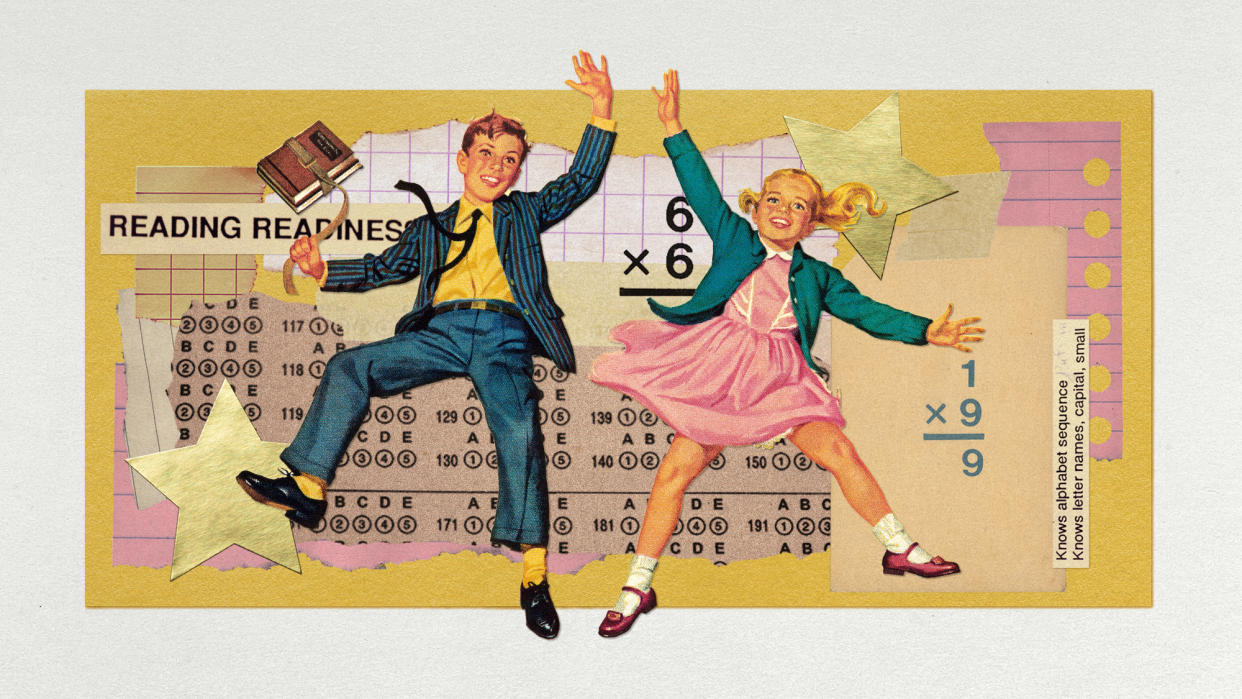Unschooling: the radical education trend raising eyebrows

Since the pandemic, there has been a noticeable surge in homeschooling. Now, a different pedagogical trend called "unschooling" is gaining momentum, sparking controversy and debate online.
In June, spiritual influencer Mami Onami went viral after discussing unschooling or "free schooling" her children. "We don't teach our children anything," she said in a TikTok video. "Everything that they learn is in response to either their interest or their questions." With no set curriculum or school hours, she and her partner "just respond whenever [her kids] wanna know something and do our best to make sure they really get it." Mami Onami's declaration has led to backlash on social media, with many commenters questioning her parenting. However, she is not alone in pursuing this alternative route to educating her children.
What is unschooling?
Unschooling can be broadly defined as "a method in which there is no imposed curriculum on the child," Peter Gray, a research professor of psychology at Boston College and one of the founders of the Alliance for Self-Directed Education, said to Rolling Stone. This approach puts the child in charge of their learning and is "based on the idea that children naturally learn what they are naturally curious about," he said. The concept "encompasses a wide range of pedagogical philosophies," the outlet added. Some unschoolers stick to a schedule and provide light instruction on subjects like reading and math; others "eschew structure altogether, allowing their kids to create their own schedules." The overall lack of structure sets it apart from traditional homeschooling.
The anti-institutional unschooling ideology is rooted in the doctrine of eighth century philosopher Jean-Jacques Rousseau, who believed children should be free to explore their own interests. Former school teacher and homeschool advocate John Holt coined the term unschooling in the 1970s. After "decades of virtual obscurity," interest in the "unorthodox method surged during the pandemic," said the New York Post. Internet searches for the term spiked in 2020, per a Google analytics report, "and it soared to similar heights in April 2024, owing to its trendiness on social media," said the Post.
Like homeschooling, the unschooling community used to be largely comprised of white conservative Christians. However, the movement has become increasingly diverse, welcoming families from all backgrounds. Black families, in particular, have been gravitating toward the method more, viewing it as an integral part of "a larger Black liberation movement," Gray said to Rolling Stone. Contrary to popular belief that only middle- and upper-class families can afford to homeschool their children, unschooling families tend to be on the lower end of the socioeconomic spectrum, he added. People who choose this route have "values other than material value," and are "not as oriented towards high achievement in the usual sense."
'People are saying the system is broken'
With the public school system under increased scrutiny since the pandemic, people are being drawn toward alternative education paths for different reasons. Unschooling advocate Akilah Richards sees this as a social justice practice, defining unschooling as a "child-trusting, anti-oppression, liberatory love-centered approach to parenting and caregiving" in a YouTube video. Others worry that unschooling will prevent children from having the social interactions that will teach them to fit into broader society. But Onami told Rolling Stone that's intentional. "In so many different ways, people are saying the system is broken," she said. "And school is the institution that prepares people to live in that world."
Still, in an increasingly polarized world, unschooling in siloed environments might further contribute to kids growing up isolated, Robert Kunzman, a professor of education at Indiana University and the managing director for the International Center for Home Education, said to Rolling Stone. One of the roles public schools play is to "prepare young people to be citizens in a democracy," he said. "When these alternative forms gained greater prominence, do they share that same commitment?"
